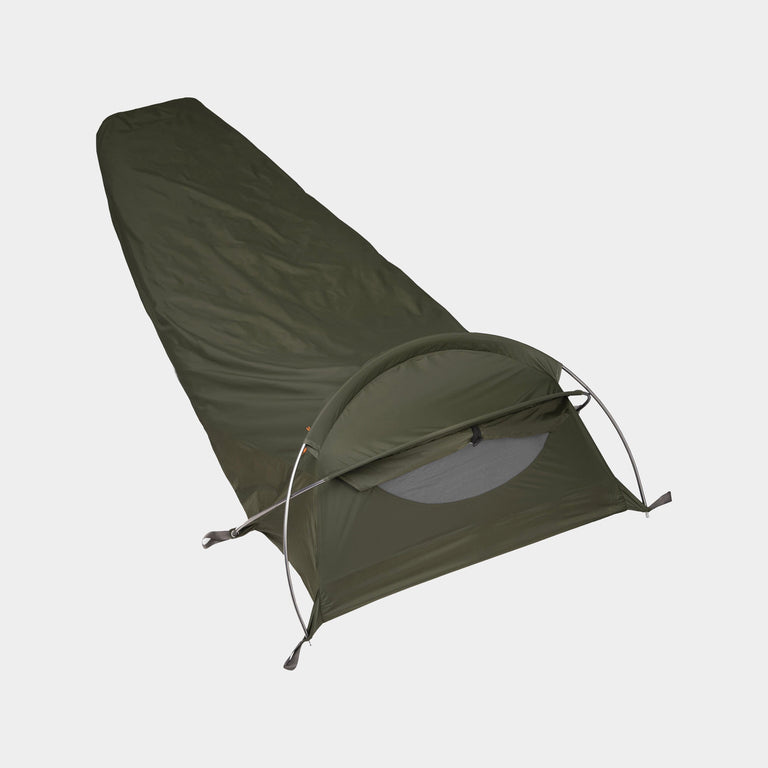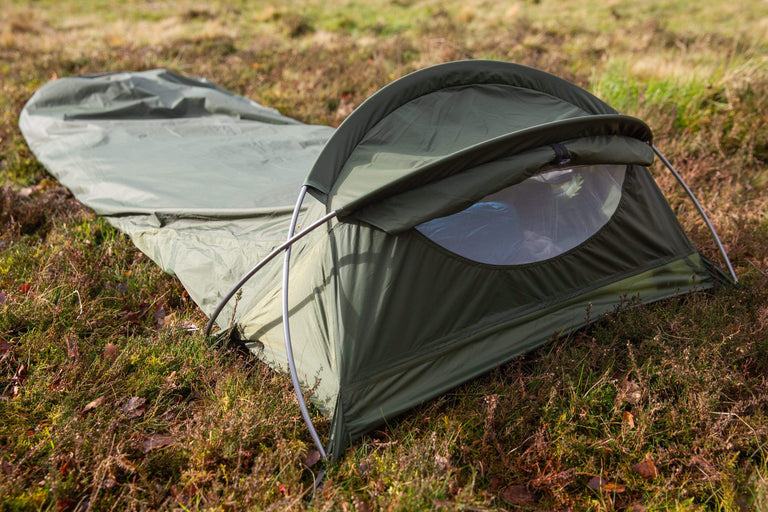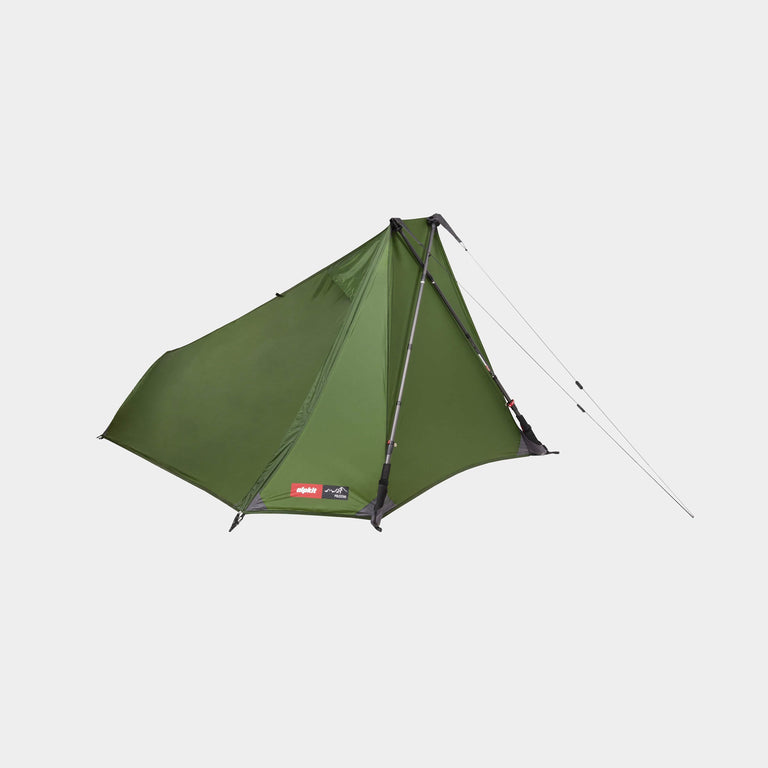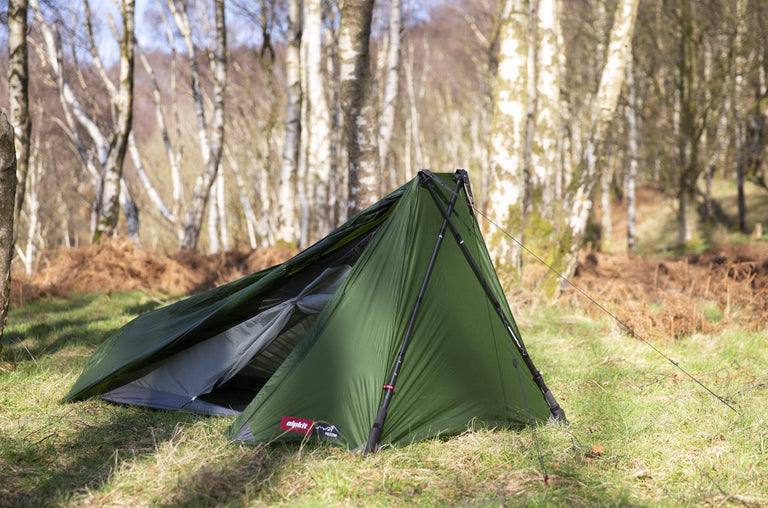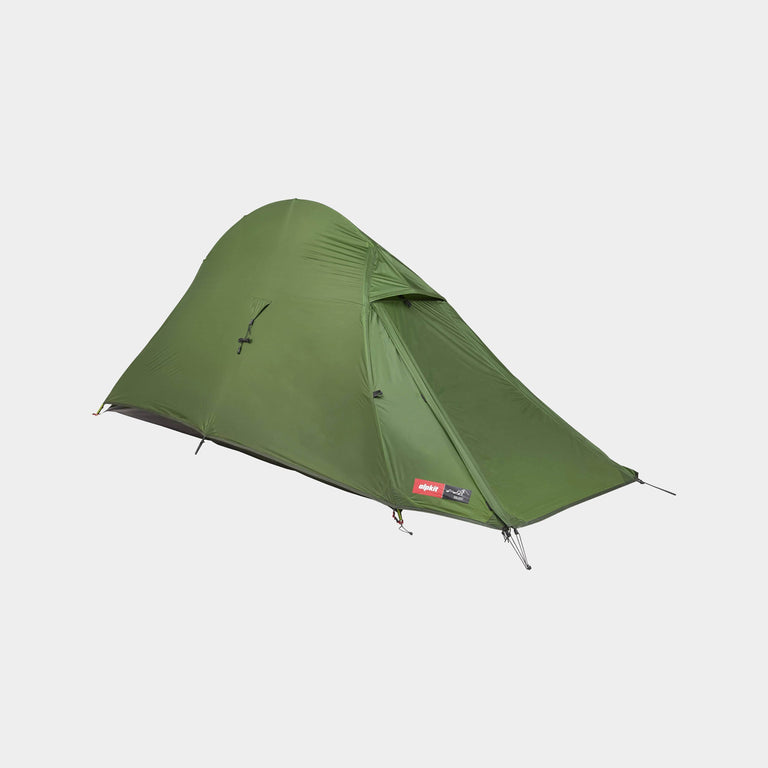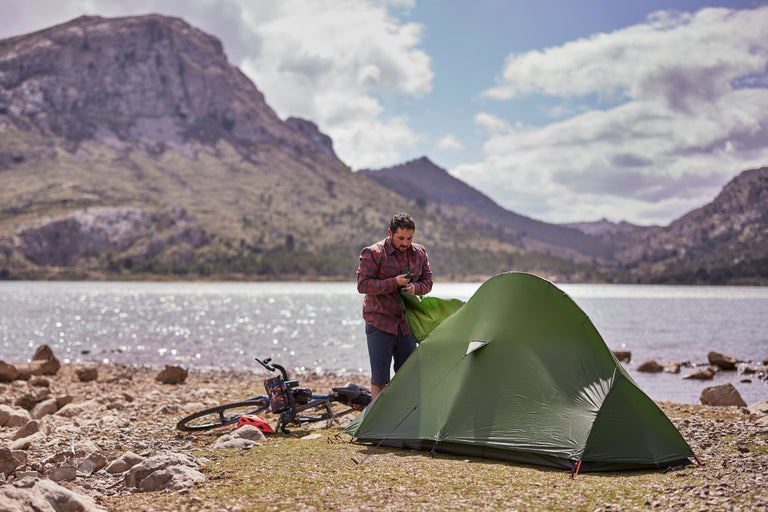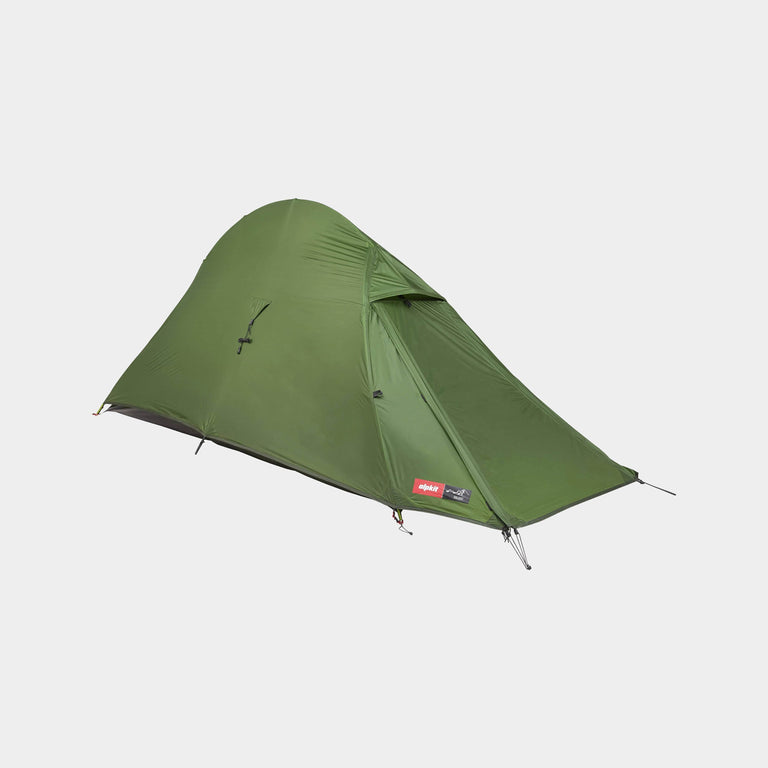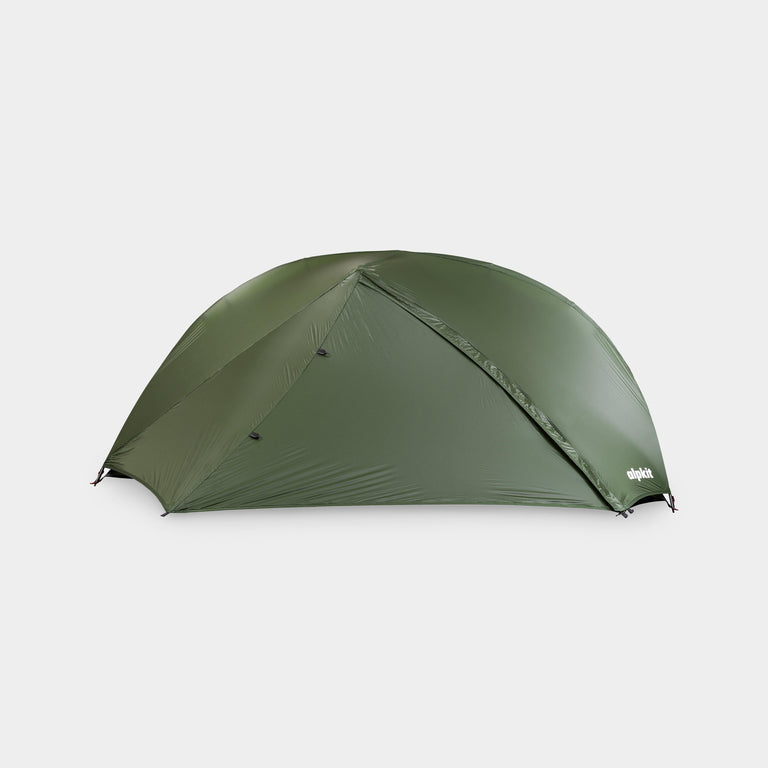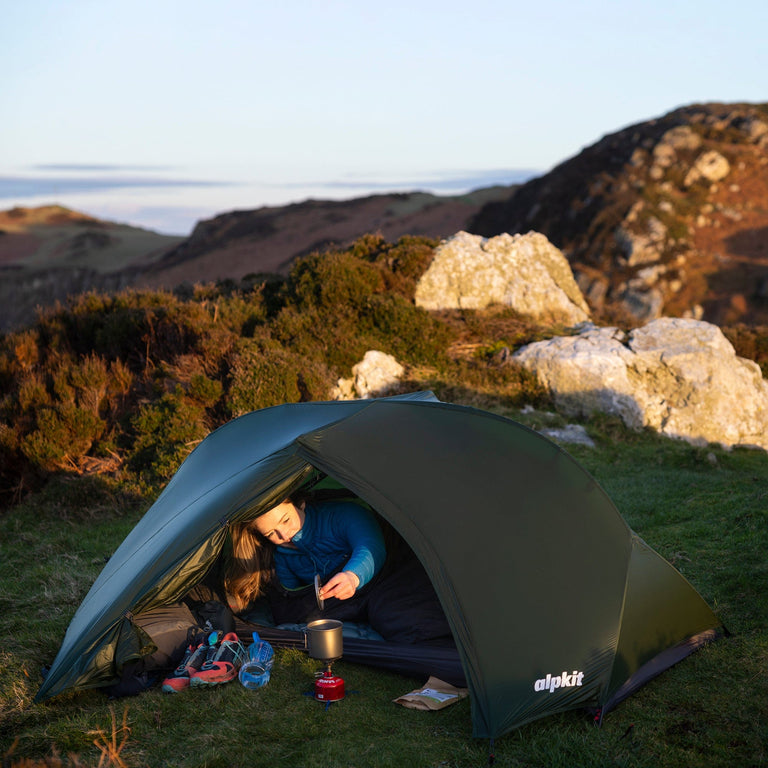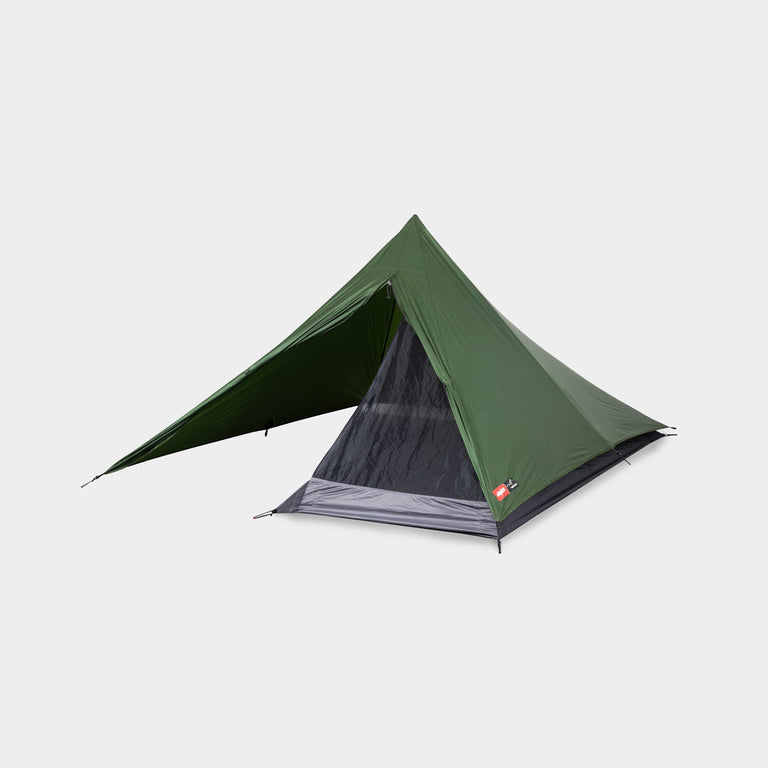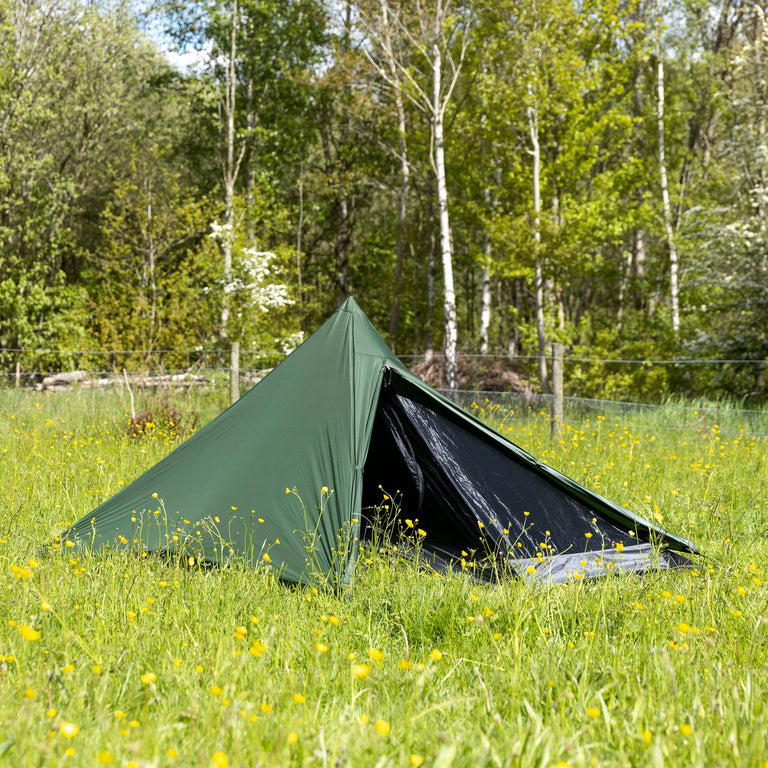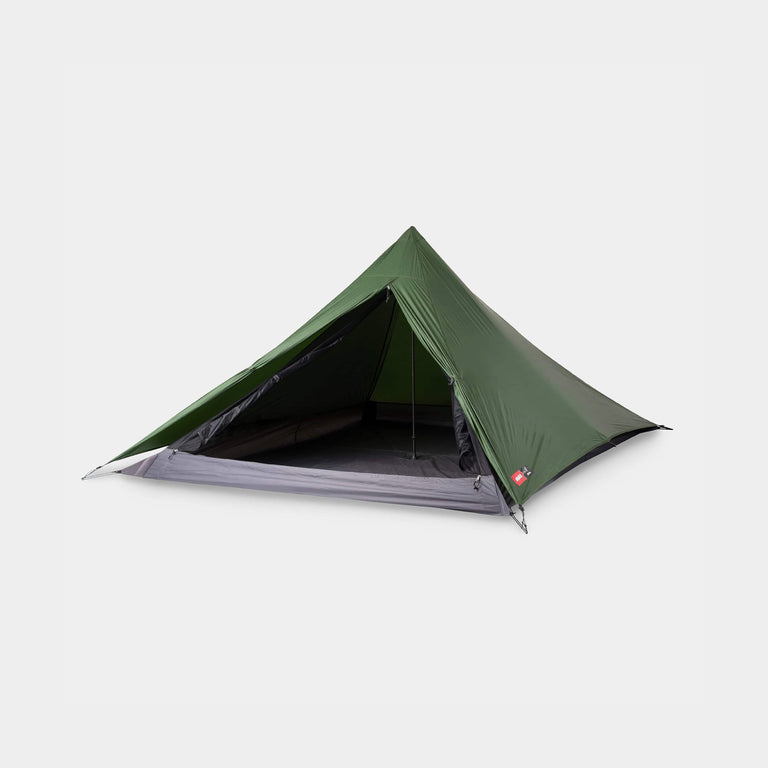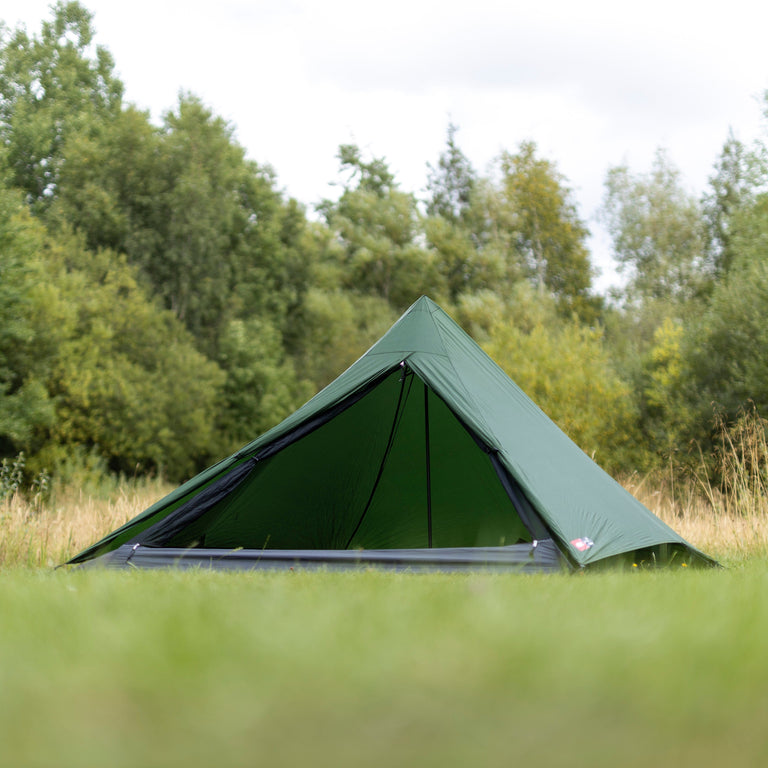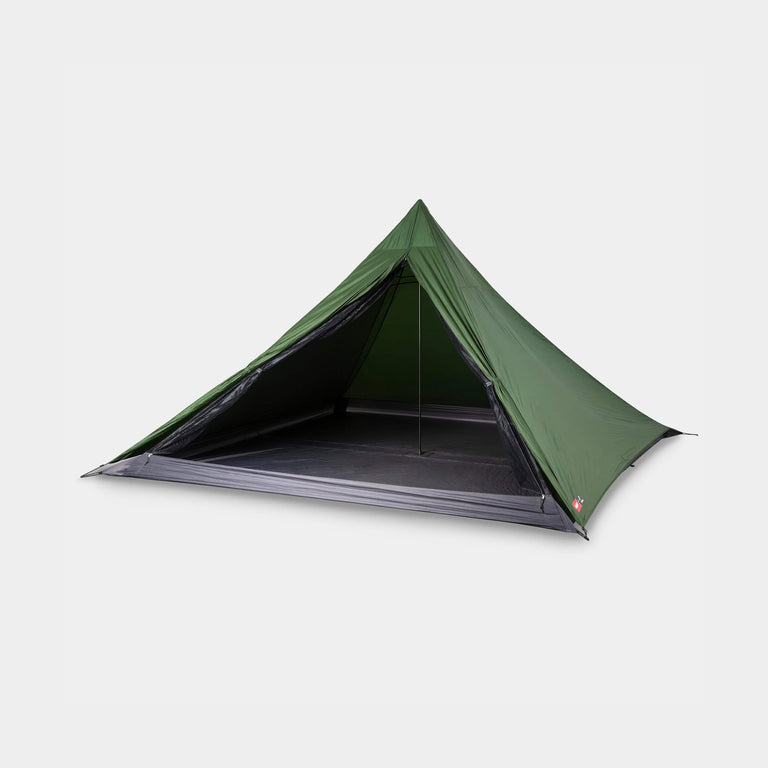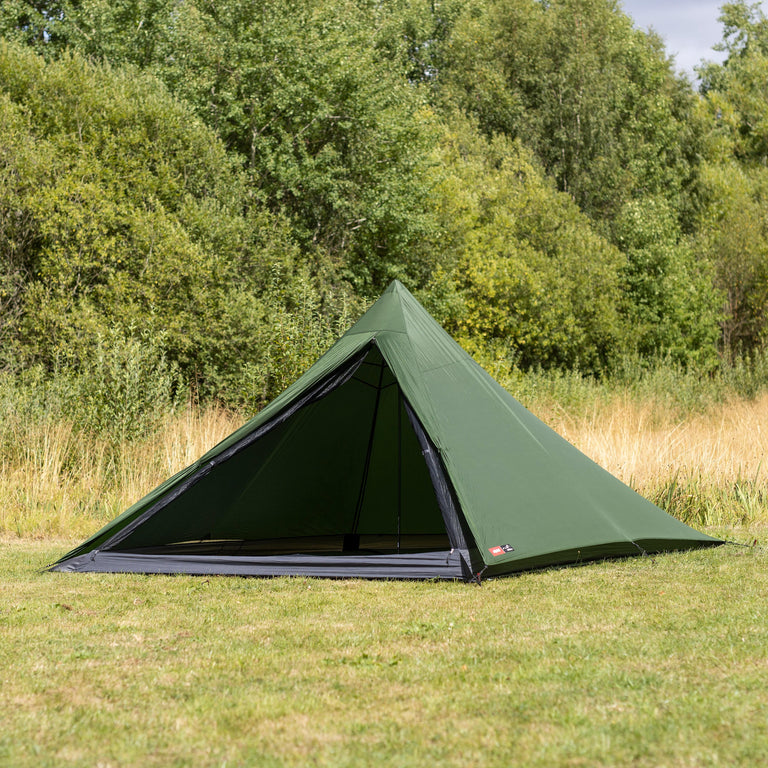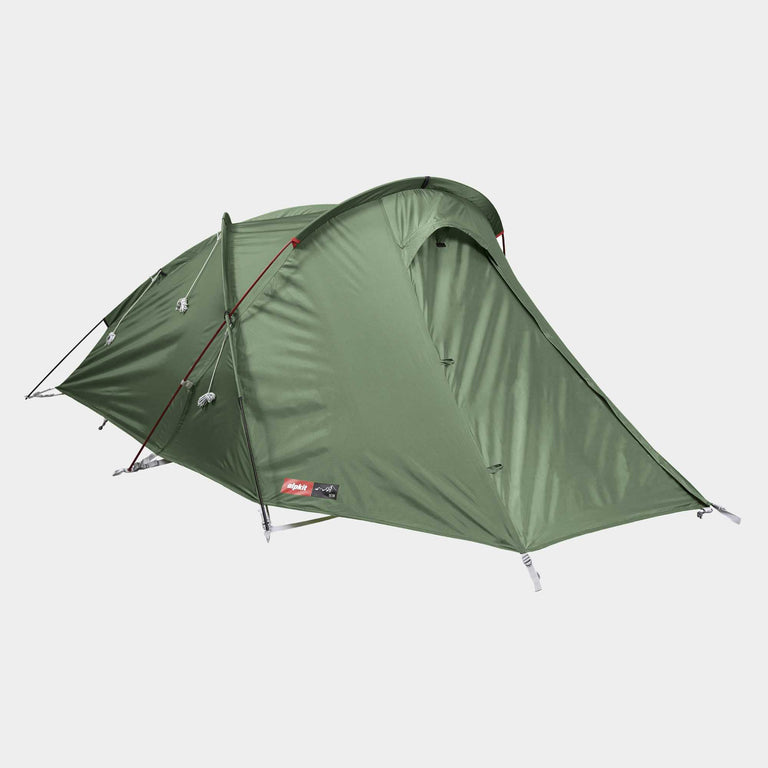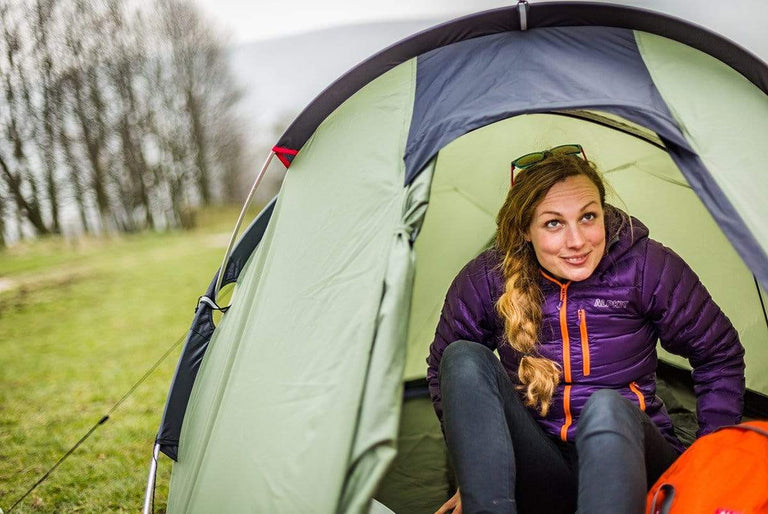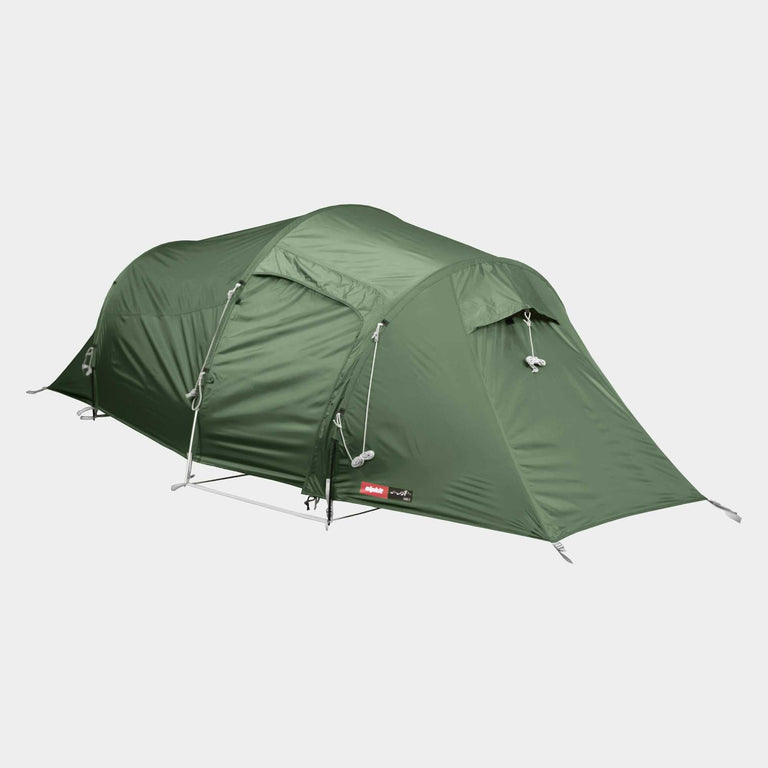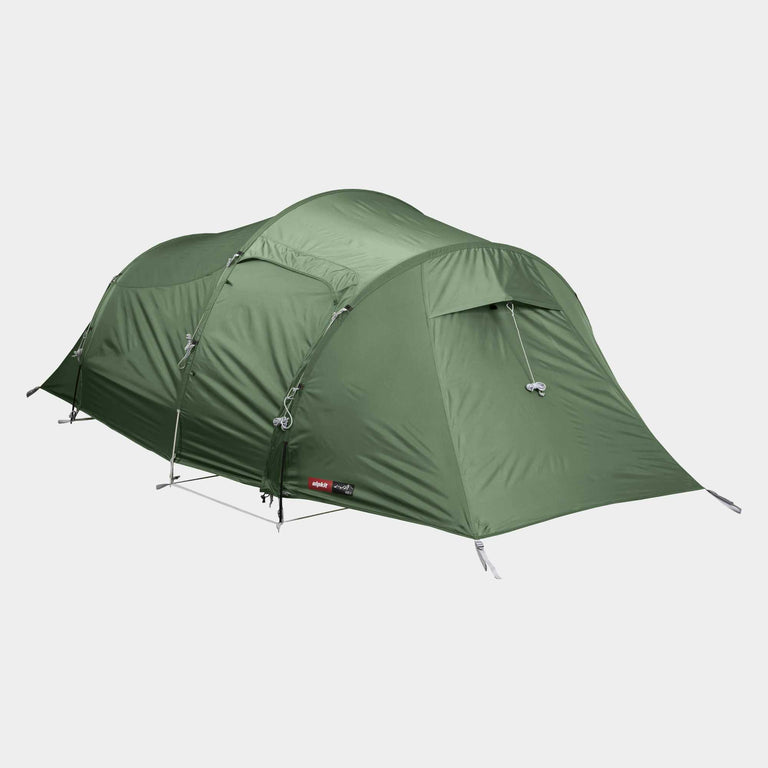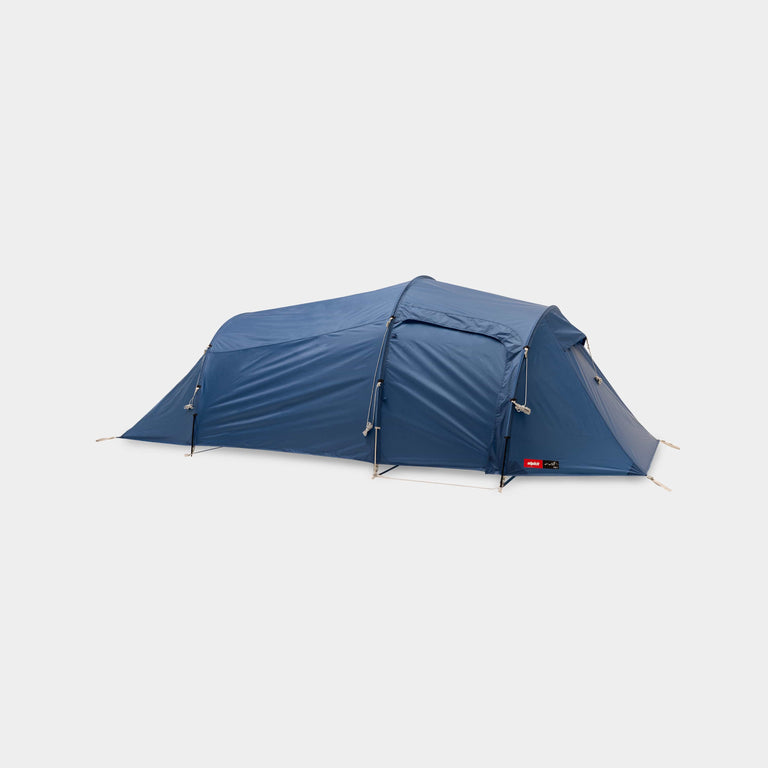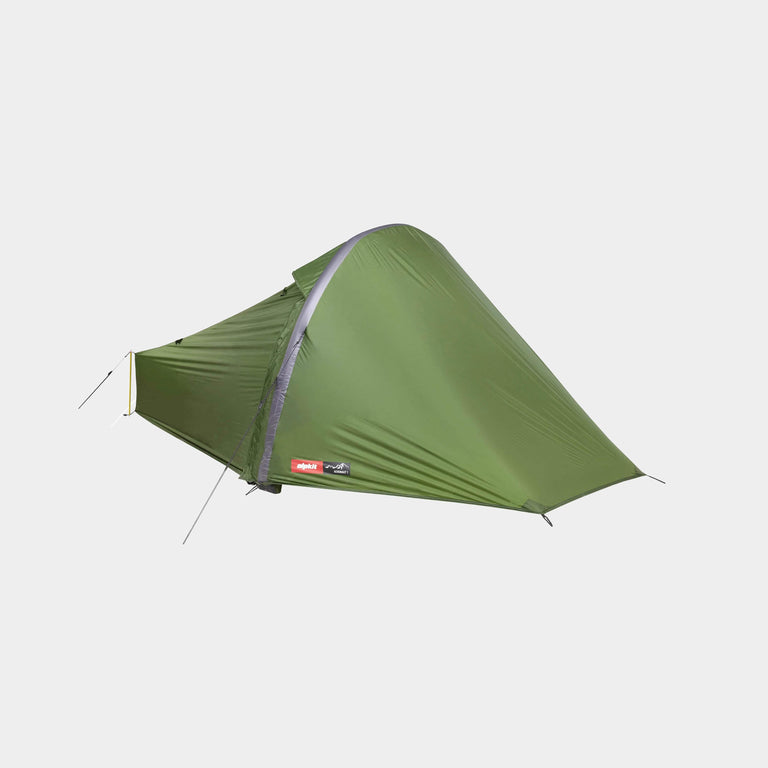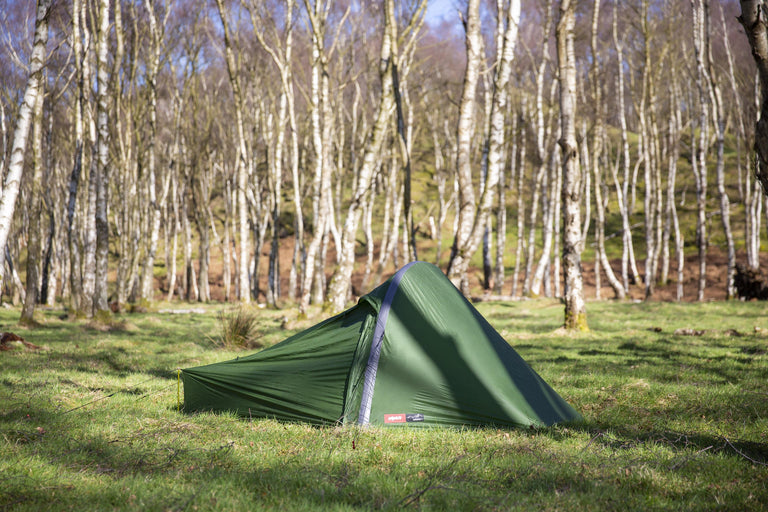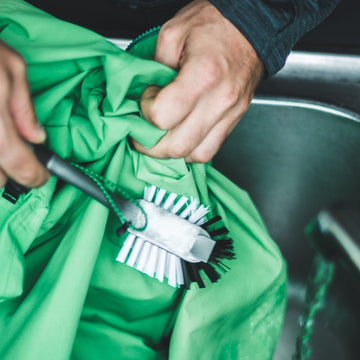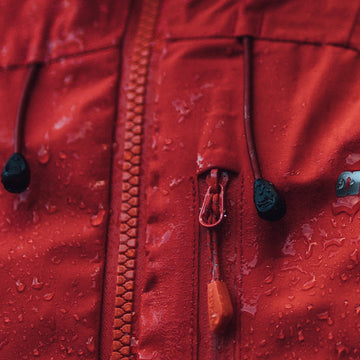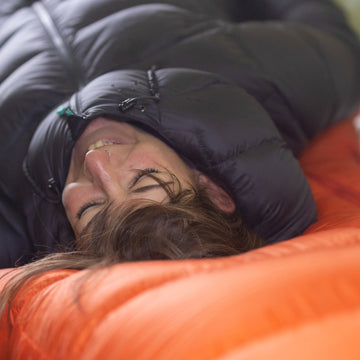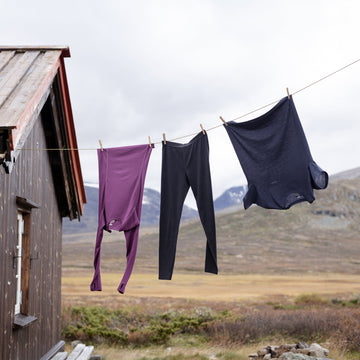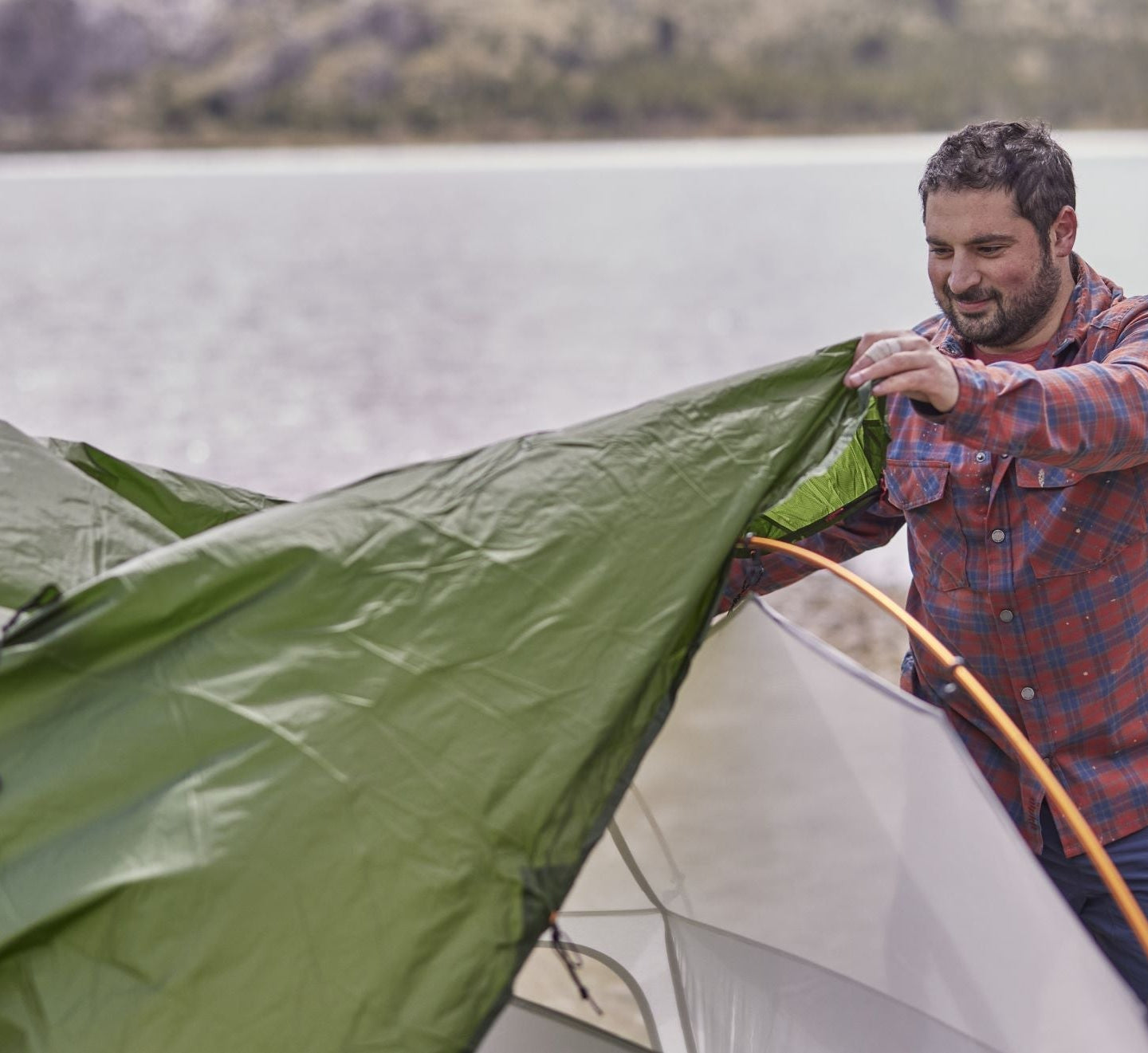
Keep your tent clean and waterproof. Check out our guide for tent maintenance, with tips on cleaning, storage, and repairs to keep your camp stress-free.
We've all done it at some point: come back, thoroughly worn out after a camping trip, and dumped our dirty kit in a pile and promptly forgotten all about it. The next time we take our tent out, its covered in mud and mildew and in dire need of some intensive TLC. Follow these simple tips after a trip and you'll keep your tent in top condition for years.
Tent Care and Repair Advice
- How to clean a tent after camping
- How to clean a tent with mold
- What is it safe to clean a tent with?
- Can I use a hose on my tent?
- How do you dry a tent at home?
- How to store your tent
- How often should I waterproof my tent?
- How to repair your tent
How to clean a tent after camping
To clean your tent, lay it out flat and use a sponge with non-detergent mild soap in clean, warm water. You should never use a washing machine/tumble dryer to clean your tent.
Make sure you look after your zips too as these can easily seize after a damp or dusty trip. Use a brush and a small amount of lubricant to get them running smoothly again.

How to clean a tent with mold
There's a few ways to clean mould off your tent. It's best to keep on top of it. Just like you do in your house. It's not good for you!
- Test these methods on a small patch of your tent before you do them all over. This'll ensure you're not staining swathes of tent unnecessarily!
- First of all, you should try and brush off the mould with a stiff-bristled brush.
- Scrub the affected area with warm water and mild, unscented soap. Or you could buy a specialist tent care and repair kit! Be extra gentle if it's a canvas tent!
- Rinse with warm water and leave to dry.
- You could also try a more natural cleaning method (one cup of warm water to one quarter-cup of white vinegar) to get into the nitty gritty of your mould and mildew issue.
What is it safe to clean a tent with?
Mild detergents and specific tech washes are the best option for tent cleaning. Avoid harsh chemicals, bleach, pressure washers, washing machines, car washes, tumble driers.you know the drill.

Can I use a hose on my tent?
You can use a hose if you're still being gentle with your kit. Pop it on a gentle setting, there's no harm in using it to rinse down your tent. Pressurised settings can put holes in the seams of your tent.
Can I leave my tent wet? How do you dry a tent at home?
It's vital to dry your tent out straight after a trip. In summery, dry, dreamy weather, you can pitch your tent in your garden to dry it out. Or hang it on your washing line! But if you're in rainy England, hanging it over doors until thoroughly dry in your house is a great option.
Tent drying includes your pegs! Even a small amount of moisture can lead to mildew build-up, seam tape weakening and that foisty smell you always get with damp scout huts.
How to store your tent
Sweep the tent out and clear the pockets before folding it. To get the tent the right size to fit into the bag, fold it into a long rectangle using the poles as guidance. When rolling the tent, roll with the poles and pegs in their storage bags. This prevents dirt getting into the tent and reduces the chance of tears from sharp pegs or loose poles.
When storing your tent for a prolonged period of time, store in a large cotton storage bag or mesh bag , similar to the ones you’d use for your sleeping bag or down jacket. This will further help to prevent mildew and odours occurring. Store your tent in a cool, dry place away from sunlight.

How to make your tent last longer
How often should I reproof my tent?
It depends on how often you're using it! You can wait until you see a bit of leakage before reproofing it. Or base your TLC on a standard rule of thumb. If you're camping a couple of weeks a year, you can reproof your tent every two years. Just like your favourite waterproofs, your tent needs TLC.
Use a tent footprint
The base of your tent takes the brunt of any wear and tear. Using a footprint protects your tent bottom from rough ground, sharp objects and abrasive surfaces like sand. It’s far cheaper and easier to repair or replace a footprint than it is your tent’s groundsheet.
Don’t leave your tent out in the sun
Too much exposure to UV rays can cause your tent’s flysheet to deteriorate and weaken. You can lessen this damage by pitching the tent in a shaded area (although be sure to avoid coconut trees or popular lemming jumping cliffs).
If you’re basing yourself in one area for a period of time and can’t find a shaded area, take your tent down during the day. Packing it away from degrading UV will extend the flysheet’s lifespan considerably.

Be careful with your tent poles
To prolong the lifespan of your tent poles, take care not to bend them too much when pitching or taking your tent down. Make sure the joints are properly in place before bending the poles too as this stops the ends becoming sharp or bent.
When removing the tent poles it is better to push the pole through the pole sleeve rather than pull the separate sections through as this could cause the elastic inside to tear or break, while possibly causing the pole sleeve to rip as well.
It’s also better to start from the middle of the pole when disassembling it as this puts less strain on the shock cord. Fold in half, and then in half of that half, and then. well, you get the idea!
Remove your tent pegs properly
You should never use any part of the tent itself to pull your pegs out of the ground. This can cause tears in your flysheet, weaken guy lines or rip the peg loops from the tent. Use a spare peg or stick to hook the pegs out instead. If a peg bends it can usually be bent back over a stone or through brute strength.
Open zips carefully
Tent zips can be under a lot of tension when pitched. Guiding your zip round while closing the door will keep the fabric from being caught in the teeth and potentially ripping the tent or causing damage to the zip.

Keep the inside of your tent clean
Having a quick sweep/shake of the inside of your tent before chucking all your stuff in will help to preserve the groundsheet. Moisture can eat away at the seam taping and dirt or debris can wear away or tear your groundsheet. On multi-day trips, allow your tent inner to air out before you pack it away and shake out any dirt, where possible.
Reproof your tent so that water beads away
It doesn’t happen very often but tent flysheets that have experienced a lot of hard use or become dirty over time may lose their water repellency. If you notice that your tent stops beading (rain soaking in rather than forming droplets on the surface) on the outside of the flysheet, it may be time to reproof it. Nikwax and Grangers both sell environmentally friendly (PFC-free) tent reproofers.
Repair small tears or damage as soon as possible
More on this below but duct tape is your number one ally! Small rips on day one of a multi-day trip can soon turn into gigantic tears after a few days or one night of bad weather.

How to repair your tent
If you're unlucky enough to rip your tent when out camping (freak spaniel attacks can and do happen!) then you can’t go wrong with a trusty roll of duct tape. A lot of people wind several lengths around their water bottles for this very purpose.
StormSure Tuff Tape makes for a highly effective and longer-lasting repair if you have some. If your rip is too extensive even for Tuff Tape to hold for long bring it to one of our Repair station">Repair Stations when you get back and we’ll patch your tent back together.
If a pole breaks while out in the field, use a splint or pole sleeve (all our tents come supplied with one of these) over the break and tape it into place. Whilst this will stop your tent from falling on your face, these temporary repairs won’t last for long. We carry spare pole sections for all of our tents, so give us a ring or drop us an email when you get back.
We use TPU seam-taping on most of our tents which is longer lasting and more resistant to wear through hydrolysis (water getting into the seam tape and breaking down the bonds). However, seam taping does sometimes come apart, especially after a lot of hard use. Use a small dab of seam sealant under any sections of tape that are coming loose.

